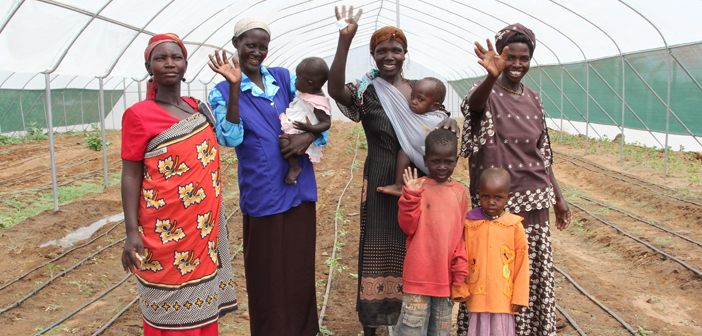Making Change
K’Tizo Tea gives back by supporting human rights and by forging bonds both stateside and abroad.
K’Tizo
www.ktizotea.com
Specialty: Teas and Blends for Cultural Connections
Mission: International Human Rights
‘Ktizo’ is a Greek word that literally means new creation or new formation. One company has adopted this idea into their philosophy with regard to tea blending, combining it with a desire to bridge cultural gaps through the education and awareness of various cultures and communities.
K’Tizo Tea works to raise awareness and to work with those who are bringing relief and hope to the millions of people enslaved in deplorable work conditions and caught in the web of human trafficking, both around the world and in the United States.
The company’s main philanthropic efforts support the International Justice Mission (www.ijm.org), a human rights agency that has been bringing rescue to victims of slavery, sexual exploitation and other forms of violent oppression for the past 15 years. IJM lawyers, investigators, and aftercare professionals work with local officials to secure immediate victim rescue and aftercare, to prosecute perpetrators, and to ensure that public justice systems, police, courts and laws effectively protect the poor.
Founder Judy Duncan wants everyone to experience a soul-awakening encounter when they enjoy delicious teas and tisanes. She said she sees the variety of teas and tisanes as “connecting beverages” and desire to connect people to cultures and communities, bringing dimension and awakening souls to life. Tea Magazine talked with Judy about K’Tizo’s mission and passion.
TM: Talk a bit about how you started K’Tizo Tea.
Judy: I had been living in the DuPage area near Chicago and had completed my master’s in intercultural studies. Because I grew up in Chicago, I wanted to bring the rich diversity of the city to my suburban community through an event-oriented cultural arts café. We would bring in art from different cultures and present them with the beverages of the culture. That is my long-range vision. Because of that concept, I became more interested in teas, since tea is connected deeply to many cultures. I developed a tea line that would feature a lot of blends. I do love and appreciate our pure teas because I am a certified tea specialist, but something great happens with blending—just as with cultures in our communities. One can experience/taste the distinctiveness of each ingredient while discovering a marvelous unique creative blend that offers something entirely different. So it is when we bring cultures together there is our individual distinctiveness with a unique blend that results as we enfold some parts of each other’s culture. It’s maybe a little philosophical, but it is the basis of why we started.
TM: How did you get involved with International Justice Mission?
Judy: I went to IJM when we started because we had a desire for the business to give back, and felt like IJM was the way. Many don’t realize there are around 27 million people enslaved across the world, America too. Human trafficking is a $32 billion industry—second only to drug trafficking. That’s why we felt we needed to highlight it; anything that profitable will only continue if you don’t stop the safeguards that otherwise allow it to grow.
We felt for our organization, this was a step higher than fair trade. We do of course incorporate Fair Trade practices, but this goes to changing a system. The IJM works within governments to empower them to abolish slavery practices. While it is illegal everywhere, this has a chance to make a long-range difference.
My first profession was nursing, and it always seemed like we were one step behind correcting problems; we talked preventive medicine but that was not the focus. We never could get to the root causes. In this case, IJM affects the roots of the problem. When I open my cultural café, we will highlight organizations that do after care for people who are brought out of slavery, equipping them with skills to get jobs so they won’t be drawn back into that life. A huge portion of human trafficking is, of course, sex trafficking of young women and men, but also workers in forced labor. Many don’t have a choice and most can’t see how to get out. When we open the café, working for aftercare in communities both abroad and here in America will be highlighted. IJM serves as the umbrella that changes the system, and other agencies we support help fill in gaps.
Our motto at K’Tizo Tea is “Awaken the soul.” K’Tizo has fantastic teas, we love connecting people, helping them appreciate a unique cultural experience and make great connections. Hopefully we start it over a cup of tea!




